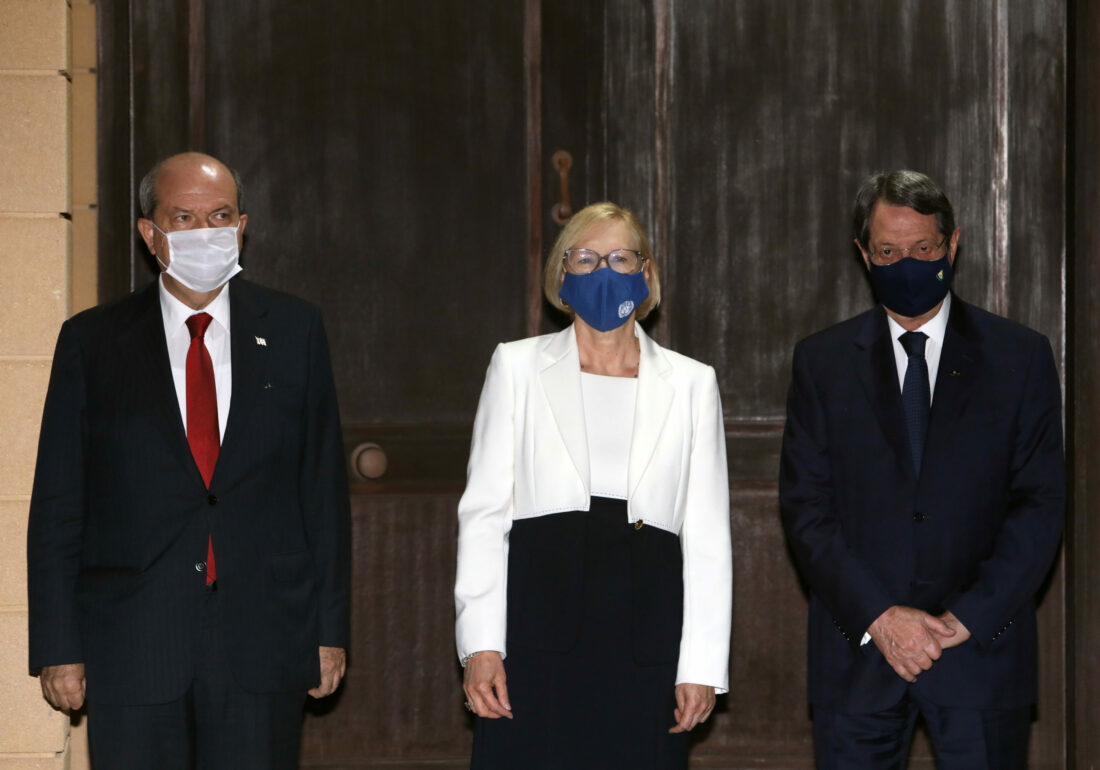
Toumazos Tsielepis: The UN Secretary General has no intention of failing
6 Dec 2020 HARAVGI newspaper
The Head of the Cyprus Problem Office of the C.C. of AKEL and Political Bureau member Toumazos Tsielepis underlines that the informal five-party conference, if it does takes place, will be a preparation for a conference on the substance that will subsequently follow. At the same time he also noted that even if it the informal five-party meeting takes place, it is obvious that the Secretary General of the UN has no intention of convening a conference focusing on the substance unless he is convinced that this time he will have serious possibilities of reaching a successful outcome.
Toumazos Tsielepis explained that it will be an informal meeting of the Geneva type held in January 2017 that will prepare the ground for a conference on the substance, such as the one at Crans Montana.
Asked to comment on the government spokesman’s statement that the two sides will submit their positions, T. Tsielepis said that this is to be expected, otherwise it will not be possible to determine whether the preconditions and the ground exist so we can move on to the substance.
- Tsielepis pointed out that the procedure for a resumption of talks will not be able to proceed if Tatar and Ankara repeat at the table, and before the UN Secretary General himself, what they are declaring in public. Antonio Guterres, states T. Tsielepis, cannot go to a conference on the substance if one side is talking about a two states solution or a confederation and the other side does not have a clear position.
In such a case, he noted, the informal conference’s failure is predetermined and Mr. Guterres will certainly not want to risk convening it.
Furthermore, T. Tsielepis also noted that to have a chance of success, the Greek Cypriot side must be very clear, namely, that it means what it says that it is seeking a solution of Bizonal, Bicommunal Federation with political equality, continuing from where we had remained at Crans Montana, with the convergences that have been agreed so far, the joint declaration and the Framework submitted by the UN Secretary General.
AKEL will not accept confederation
Regarding decentralized federation, T. Tsielepis pointed out that first and foremost the federal solution must be saved, which is in danger, and then we will move on to details on how centralized or decentralized federation can be. He also reiterated that so far the government has not explained what competences it wants to decentralize. In addition, with regards the intentions for the form of the solution, T. Tsielepis said that “there is a prevailing atmosphere about joint representation abroad, while on the domestic front there will be no substantial central competences”. This, he stressed, “would mean confederation, that is to say, two separate states with a loose cooperation between them.” Such a settlement, he underlined, will not be accepted by AKEL and this is a message to many recipients.





